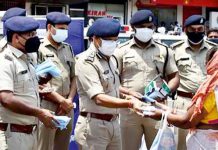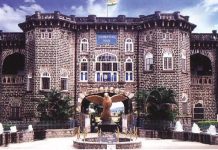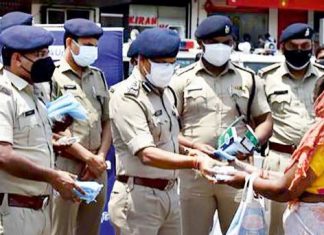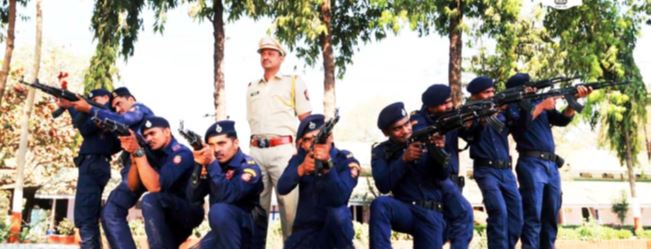
Akola is a city under Amravati Division in the Vidharbha region of Maharashtra. It is known to be the third-largest city in the region. It is situated about 580 km east of Mumbai – the State Capital. The city has witnessed several developments in the field of education and infrastructure. This has prompted many to migrate to Akola on a large scale. Akola is an important educational centre as well, with several colleges affiliated with the Sant Gadge Baba Amravati University. It is also gradually developing into a great market centre.
To look after the citizens of Akola and to maintain law and order, the District Police administration has been into function. Akola City Subdivision has eight police stations and covers the metropolitan area of the growing city. Managing the increasing number of migrants has turned out to be a tough job for the Akola Police. In this edition of Mumbai Protector, we will get a glimpse into the function of the Akola Police and the initiatives they conduct for the betterment of the local citizens.
Functioning
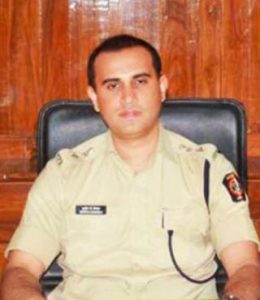 The mission of Akola Police is to help the citizens and make the city a safer place to live in. Like every other district police setup, Akola Police is headed by the Superintendent of Police. At the helm is Amogh Gaonkar (IPS). Akola Police strives to maintain law and order, prevent and detect crime and protect life and property of the people in the district. The Government has also approved the creation of a new Railway Police Akola Sub-division that includes Akola, Wardha and Badnera Railway Police Units.
The mission of Akola Police is to help the citizens and make the city a safer place to live in. Like every other district police setup, Akola Police is headed by the Superintendent of Police. At the helm is Amogh Gaonkar (IPS). Akola Police strives to maintain law and order, prevent and detect crime and protect life and property of the people in the district. The Government has also approved the creation of a new Railway Police Akola Sub-division that includes Akola, Wardha and Badnera Railway Police Units.
Headquarter
 Akola District has its police headquarter at Akola. The headquarter maintains the Reserve Police Force which is used for guard duty, escort duty and many other regular duties. It also arranges basic police training sessions.
Akola District has its police headquarter at Akola. The headquarter maintains the Reserve Police Force which is used for guard duty, escort duty and many other regular duties. It also arranges basic police training sessions.
When there is a breakdown in law and order, the Akola Police use the services of the Reserve Police Force to handle the situation. The Reserve Police Inspector who is stationed at the headquarter is in charge of the discipline, training, canteen, store, armour room, building, maintenance, quarter guard and magazine, which are under the observation of the Home Deputy Superintendent of Police and Superintendent of Police.
Control Room
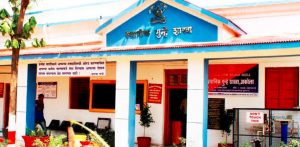 Communication plays a very important role in the smooth functioning of a police station. The control room performs the role of a communicator between the field staff and controlling authorities at all levels. The Control Room also monitors the movement of the Force and ensures proper execution of orders.
Communication plays a very important role in the smooth functioning of a police station. The control room performs the role of a communicator between the field staff and controlling authorities at all levels. The Control Room also monitors the movement of the Force and ensures proper execution of orders.
During critical situations, and in the absence of senior officers or the Unit Commander, the Control Room Officer has to make decisions, give directions to the officers present on the spot, and if required, dispatch forces to assist the police officers on the spot, and to promptly communicate important events to the Unit Commander, senior officers and the DG Control Room.
Local Crime Branch
Handling Subjects:
- Modus Operandi Bureau
- Missing Persons
- Parole and Furlough Leave of Prisoners
- Absconders/Wanted Persons
- Summons and Warrants
- Theft of Motor Vehicles
- Human Rights Application
- Jail Release Accused
- PCR
- Child Labour
- Tiger Cell
- Spl. Executive Magistrate
- Detection of Undetected Crime
Anti-Dacoity Squad (ADS): This branch prevents and detects property crimes like dacoity and robbery. It is one of the best crime detection teams in Maharashtra.
Modus Operandi Bureau (MOB): This branch collects information of modus operandi and various crimes, maintains records like Known Criminal Register, History Sheet Register, Convicted Persons Register and Monitored Conditional Release (MCR). The branch, therefore, helps investigation officers by giving suggestions concerning offenders likely to be involved in offences.
- To detect a crime with particular modus operandi.
- To keep crime under control.
- To visit the crime scene
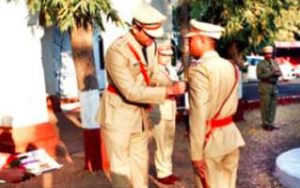 Dacoity:
Dacoity:
Dacoity with arms
Dacoity committed by habitual criminals
Serial dacoities in specific areas
 Robbery:
Robbery:
Robbery with arms and ammunition
Robbery by habitual criminals
- Serial robberies in a specific area
3. Burglary:
HBT above Rs.20,000/-
Temple Theft (Idol and above Rs 5000/-)
HBT by habitual criminals
HBT by known gangs
- Crime Investigation: Detection and investigation serious, sensitive and undetected offences under:
- Enquiry:
Suspected death
Application
Missing persons
Human Rights violations
- Raids:
Prohibition
Narcotic drugs
Weapons and firearms
Essential commodities
Gambling
- Watch: To keep watch on and to take legal action against:
History-sheeters
Inter-district and Inter-state criminals
Absconder and wanted criminals
Criminal gangs
Immoral trafficking of children and women
- Finger Print Branch:
This branch collects and maintains fingerprints. Experts visit the crime scene and take chance prints. They search through the fingerprint database of arrested accused and provide the identical fingerprint to the investigating officers.
Scientific Aids to Investigation
This unit helps to investigate the crime using scientific technique and advanced technology. When any offence takes place, this unit approaches the place of occurrence, search the evidence scientifically i.e. fingerprint, footprint or any other clue to trace out the criminal and help to investigate the crime.
District Special Branch
 The District Special Branch (DSB) works under the supervision of the Superintendent of Police. When any tour or programme is organised for VIPs/VVIPs, the DSB provide the required convoy, escort and other police bandobasts at public meetings and other places where the VIPs/VVIPs are assembling. The DSB works on providing security during elections, kinds of festivals, public meetings, demonstration, dharna, strikes, morcha, etc. which are organised by labourers/ employees, social organisations and political parties. The DSB collect information about such programmes for maintenance of law and order and security in Akola District. If any minor incident occurs creating law and order problems then the DSB gives necessary instruction to the police station to prevent any untoward incident.
The District Special Branch (DSB) works under the supervision of the Superintendent of Police. When any tour or programme is organised for VIPs/VVIPs, the DSB provide the required convoy, escort and other police bandobasts at public meetings and other places where the VIPs/VVIPs are assembling. The DSB works on providing security during elections, kinds of festivals, public meetings, demonstration, dharna, strikes, morcha, etc. which are organised by labourers/ employees, social organisations and political parties. The DSB collect information about such programmes for maintenance of law and order and security in Akola District. If any minor incident occurs creating law and order problems then the DSB gives necessary instruction to the police station to prevent any untoward incident.
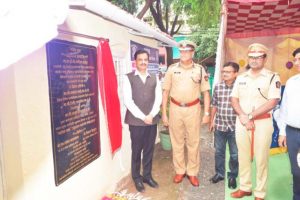 Akola district is a communally and politically very sensitive district. The officers and men of DSB have to keep a close watch on unlawful activities and all the vital installations. As per order of the Superintendent of Police, the DSB has also taken special drives from time to time to detect and deport illegal immigrants from other countries.
Akola district is a communally and politically very sensitive district. The officers and men of DSB have to keep a close watch on unlawful activities and all the vital installations. As per order of the Superintendent of Police, the DSB has also taken special drives from time to time to detect and deport illegal immigrants from other countries.
Passport Service
This branch performs verification of information mentioned in the passport application.
 Bharosa (Women & Children Help Center)
Bharosa (Women & Children Help Center)
This is a specially-created cell to look into the grievances of women, children and cases of domestic violence. Women social workers and members of NGOs have been taken on the panel. They hear the cases of victims and other family members and try to bring about a settlement between them by counselling. The cases that are not settled are sent to police stations for legal action.
Economic Offences Wing
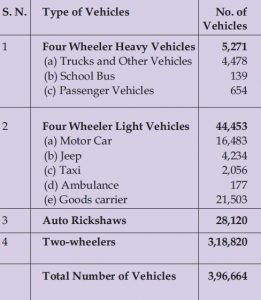 This branch handles matters regarding cheating and financial fraud. The overall in-charge and supervising officer of the Economic Offences Wing investigates complicated general cheating, frauds in banking and medical fields, job racketing, shares and bogus stamp cases, etc. It is responsible for organizing various training programs and new strategies for enhancing the efficiency of police stations concerning these issues.
This branch handles matters regarding cheating and financial fraud. The overall in-charge and supervising officer of the Economic Offences Wing investigates complicated general cheating, frauds in banking and medical fields, job racketing, shares and bogus stamp cases, etc. It is responsible for organizing various training programs and new strategies for enhancing the efficiency of police stations concerning these issues.
Traffic Branch
 This branch ensures safety on roads. A dedicated staff keep watch over the smooth functioning of traffic in all areas and take action against vehicles violating traffic rules.
This branch ensures safety on roads. A dedicated staff keep watch over the smooth functioning of traffic in all areas and take action against vehicles violating traffic rules.
Our Correspondent

